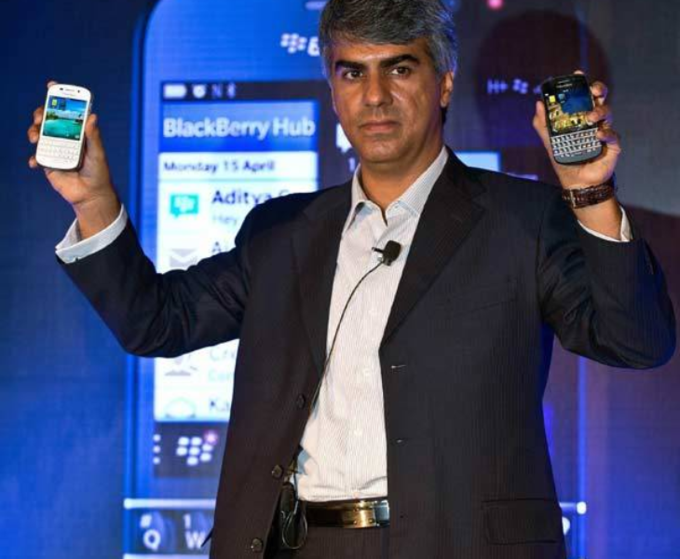
Blackberry has been through the dark. In the past two years, the company lost the battle with Korean major Samsung and homegrown smartphone maker
But
“The company went back to its roots in the past eighteen months. Our core strength has been the enterprise segment because of we offered them features such as emails, Blackberry Messenger (BBM) that were available with the phone. Now that is Blackberry’s USP as we run a private network that connects up to about 500 carriers worldwide and gives an unmatched email experience,” he says.
However, he admits that the company lost a major chunk of its market share in the last few years. “If you look at it historically, we have been riding on the wave of smartphone growth from 2000 to 2010 or 2011 and our core target audience has loved the whole qwerty experience.
From 2010 onwards, there has been an influx of low cost smartphone makers especially in the Indian market. But if you look at our manufacturing and supply chain, then you will realise they do not allow us to sell our devices below $100. For us, it did not make sense that we sell our phones below the $100 range as we could not have afford it. So, owing to that we lost a lot of our market share both globally and in India,” explains Lalvani.
The company is not present in either below Rs 10,000 or below Rs 12,000 segments in the smartphone market. Thus, it has lost out on nearly 80% of the market. “Our yardstick is not the market share because you can only think of market share when you have an entire product portfolio. For us, our benchmark is to assess how profitable are we and how are we growing our consumer base,” he notes.
Lalvani says that the company’s strategy to focus more on software has helped them grow their margins in the smartphone segment globally. However, personally, the job has been challenging. “I have been with the company for five and half years now. The better part of the first four years was in the enterprise role- where I had to understand and focus on the enterprise market and develop better relationships with the consumers among others. I always believed that Blackberry’s core strength was in the corporate because of the security nature of the features that the company offered. Globally and in India, we did lose out to the low-cost handset makers,” he states.
Recalling his appointment, he says that when this role was offered to me, about a year ago in May 2014, it was a tossup for him. “Do you take up a role when the company is declining or do you take it as a challenge and try to turn it around. The latter is what I did. I took it as a challenge as I strongly believed in the core values of the company. We were playing with our strengths such as security, collaborating or productivity and cutting across the platform. I saw that there’s a clear scope for us to grow in the Indian market," he avers. The company will soon roll out a new campaign targeting the enterprise.
Image Credit: Indiatimes.com
